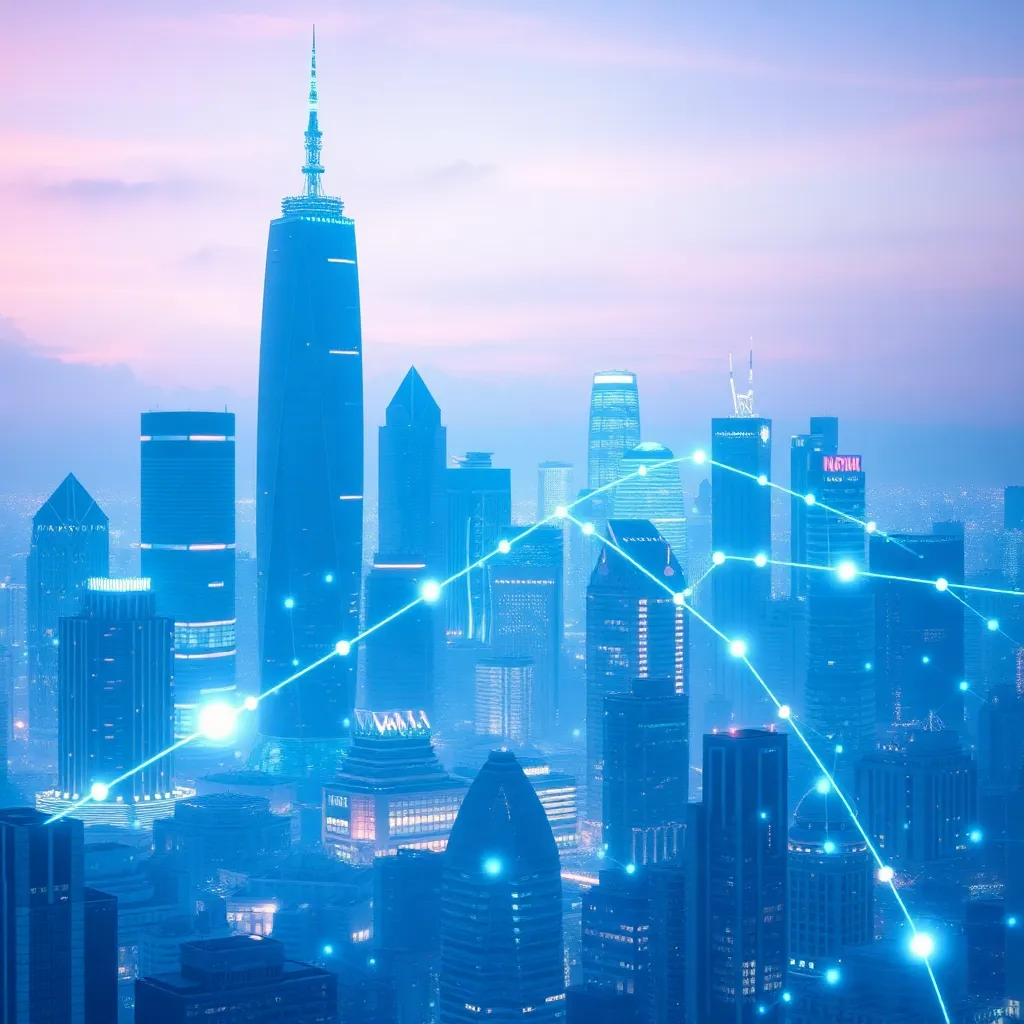AI OS: Future Computers in 2025 - Digital Agency Guide

AI-powered OSes boost efficiency & predict needs. Learn how intelligent systems will revolutionize business computing by 2025, driving unprecedented productivity.
AI-Powered Operating Systems: The Future of Computers in 2025 and Beyond
The landscape of computing is perpetually evolving, driven by advancements in hardware and software. While operating systems have become increasingly sophisticated, the next major leap forward lies in integrating artificial intelligence (AI) directly into their core functionalities. By 2025 and beyond, we can expect AI-powered operating systems to revolutionize how we interact with computers, impacting everything from personal productivity to enterprise-level efficiency.
Currently, operating systems act as intermediaries, managing hardware resources and executing instructions provided by software applications. AI integration promises to transform them from passive managers to proactive assistants. Imagine an operating system that anticipates your needs, learns your work patterns, and optimizes performance accordingly. This is the potential of AI-powered operating systems.
One key area of impact will be in resource management. Traditional operating systems allocate resources based on predefined algorithms. An AI-powered OS, however, can dynamically adjust resource allocation based on real-time analysis of application demands and user behavior. For instance, if it detects you are working on a graphics-intensive task, it can automatically prioritize GPU resources to that application, ensuring smooth performance. This dynamic resource allocation will result in significant improvements in speed, responsiveness, and energy efficiency.
Another promising area is cybersecurity. Current operating systems rely on reactive security measures, such as antivirus software and firewalls, which are often updated only after threats are identified. An AI-powered OS can proactively identify and neutralize threats by analyzing system behavior, network traffic, and user activity for anomalous patterns. Machine learning algorithms can learn to recognize malware signatures and predict potential attacks, providing a much more robust and adaptive security posture. This predictive security will be invaluable for both individual users and organizations seeking to protect sensitive data.
Beyond security, AI-powered operating systems will also enhance user experience through personalized interfaces and intelligent automation. The OS can learn your preferences and adapt the interface accordingly, providing a customized experience that is both efficient and intuitive. Imagine an operating system that automatically organizes your files, suggests relevant applications based on your current tasks, and even composes emails or creates presentations based on your instructions. This level of automation will free up users to focus on more creative and strategic tasks, boosting productivity.
For businesses, the benefits of AI-powered operating systems are even more profound. Consider the impact on IT management. An AI-driven OS can automate many of the routine tasks that currently consume IT staff’s time, such as software updates, patch management, and system monitoring. It can also predict potential hardware failures and proactively schedule maintenance, minimizing downtime and reducing IT costs. This predictive maintenance will be particularly valuable for organizations that rely on mission-critical systems.
Furthermore, AI-powered operating systems can facilitate data-driven decision making. By analyzing system logs, user behavior, and application performance, the OS can provide insights that can be used to optimize workflows, improve employee productivity, and identify potential areas for improvement. This data-driven approach can lead to significant gains in operational efficiency and competitiveness.
Of course, the adoption of AI-powered operating systems also presents challenges. One major concern is data privacy. AI algorithms require vast amounts of data to learn and improve, raising concerns about the collection and use of personal information. It will be crucial for developers of AI-powered operating systems to prioritize data privacy and transparency, ensuring that users have control over their data and understand how it is being used. Another challenge is the potential for bias in AI algorithms. If the data used to train the AI is biased, the resulting system may perpetuate or even amplify those biases. Careful attention must be paid to ensuring that AI algorithms are trained on diverse and representative datasets.
The transition to AI-powered operating systems will also require a significant investment in infrastructure and skills. Organizations will need to upgrade their hardware to support the computational demands of AI algorithms and train their IT staff to manage and maintain these new systems. However, the long-term benefits of increased productivity, enhanced security, and improved efficiency will undoubtedly outweigh the initial costs.
In conclusion, AI-powered operating systems represent a paradigm shift in the way we interact with computers. By 2025 and beyond, we can expect these systems to become increasingly prevalent, transforming everything from personal productivity to enterprise-level operations. While challenges related to data privacy and algorithmic bias must be addressed, the potential benefits of AI-powered operating systems are undeniable. Organizations that embrace this technology will be well-positioned to thrive in the increasingly competitive digital landscape. The future of computing is intelligent, adaptive, and powered by AI.
The landscape of computing is perpetually evolving, driven by advancements in hardware and software. While operating systems have become increasingly sophisticated, the next major leap forward lies in integrating artificial intelligence (AI) directly into their core functionalities. By 2025 and beyond, we can expect AI-powered operating systems to revolutionize how we interact with computers, impacting everything from personal productivity to enterprise-level efficiency.
Currently, operating systems act as intermediaries, managing hardware resources and executing instructions provided by software applications. AI integration promises to transform them from passive managers to proactive assistants. Imagine an operating system that anticipates your needs, learns your work patterns, and optimizes performance accordingly. This is the potential of AI-powered operating systems.
One key area of impact will be in resource management. Traditional operating systems allocate resources based on predefined algorithms. An AI-powered OS, however, can dynamically adjust resource allocation based on real-time analysis of application demands and user behavior. For instance, if it detects you are working on a graphics-intensive task, it can automatically prioritize GPU resources to that application, ensuring smooth performance. This dynamic resource allocation will result in significant improvements in speed, responsiveness, and energy efficiency.
Another promising area is cybersecurity. Current operating systems rely on reactive security measures, such as antivirus software and firewalls, which are often updated only after threats are identified. An AI-powered OS can proactively identify and neutralize threats by analyzing system behavior, network traffic, and user activity for anomalous patterns. Machine learning algorithms can learn to recognize malware signatures and predict potential attacks, providing a much more robust and adaptive security posture. This predictive security will be invaluable for both individual users and organizations seeking to protect sensitive data.
Beyond security, AI-powered operating systems will also enhance user experience through personalized interfaces and intelligent automation. The OS can learn your preferences and adapt the interface accordingly, providing a customized experience that is both efficient and intuitive. Imagine an operating system that automatically organizes your files, suggests relevant applications based on your current tasks, and even composes emails or creates presentations based on your instructions. This level of automation will free up users to focus on more creative and strategic tasks, boosting productivity.
For businesses, the benefits of AI-powered operating systems are even more profound. Consider the impact on IT management. An AI-driven OS can automate many of the routine tasks that currently consume IT staff’s time, such as software updates, patch management, and system monitoring. It can also predict potential hardware failures and proactively schedule maintenance, minimizing downtime and reducing IT costs. This predictive maintenance will be particularly valuable for organizations that rely on mission-critical systems.
Furthermore, AI-powered operating systems can facilitate data-driven decision making. By analyzing system logs, user behavior, and application performance, the OS can provide insights that can be used to optimize workflows, improve employee productivity, and identify potential areas for improvement. This data-driven approach can lead to significant gains in operational efficiency and competitiveness.
Of course, the adoption of AI-powered operating systems also presents challenges. One major concern is data privacy. AI algorithms require vast amounts of data to learn and improve, raising concerns about the collection and use of personal information. It will be crucial for developers of AI-powered operating systems to prioritize data privacy and transparency, ensuring that users have control over their data and understand how it is being used. Another challenge is the potential for bias in AI algorithms. If the data used to train the AI is biased, the resulting system may perpetuate or even amplify those biases. Careful attention must be paid to ensuring that AI algorithms are trained on diverse and representative datasets.
The transition to AI-powered operating systems will also require a significant investment in infrastructure and skills. Organizations will need to upgrade their hardware to support the computational demands of AI algorithms and train their IT staff to manage and maintain these new systems. However, the long-term benefits of increased productivity, enhanced security, and improved efficiency will undoubtedly outweigh the initial costs.
In conclusion, AI-powered operating systems represent a paradigm shift in the way we interact with computers. By 2025 and beyond, we can expect these systems to become increasingly prevalent, transforming everything from personal productivity to enterprise-level operations. While challenges related to data privacy and algorithmic bias must be addressed, the potential benefits of AI-powered operating systems are undeniable. Organizations that embrace this technology will be well-positioned to thrive in the increasingly competitive digital landscape. The future of computing is intelligent, adaptive, and powered by AI.

Comments (0)
Leave a Comment